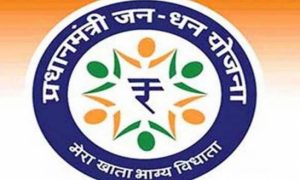The deadline for telecom operators to implement the rule was supposed to expire on September 1, but it has now been extended by a month.
Starting next month, mobile phone users will not receive any unapproved web links via SMS. The Telecom Regulatory Authority of India (TRAI) has recently announced that telecom operators must ensure that only whitelisted links are sent.
Read More:- Decision Paralysis in India: 69% people struggle to plan for the future amid rapid change – Survey
The deadline for telecom operators to ensure this happened was supposed to expire on September 1, but it has now been extended by a month, to October 1.
This means that from next month, when you receive an SMS, it will be a whitelisted link without any unapproved ones.
Unknown link via SMS
Suppose you receive an SMS link giving details about an investment plan or scheme to invest in. Earlier, the link might take you to an unknown link, which could make you lose money or invade your digital privacy by malicious elements.
Read More:- Digital Life Certificate for Pensioners: Here’s How To Get Jeevan Pramaan Online
This practice is likely to be avoided as the new rules are set to come into force.
These fraudsters tend to send phishing links to gullible investors and lure them into clicking them.
These links essentially are click baits which prompt investors into clicking them in order to seek loan or to invest in new investing plans.
Suppose you receive a link that says that there is a chance to earn a 30 per cent guaranteed return on your investment in the next year.
Read More: Centre Approves Additional Wheat Allocation Under PMGKAY, Distribution To Start In October
You are likely to click that link which takes you to a malicious link where a hacker can get access to your phone or to your financial data.
Remember SMS fraud?
Some time ago, SMS fraud was rampant, and fraudsters started taking investors for a ride through ‘SMSes’. In SMS fraud, some random person claiming to know your family will call you and ask for your bank details so that the money can be sent to you.
Read More: What Income Tax Department Will Do If You Exceed Rs 10 Lakh Deposit Limit In Savings Account
Although the money is not remitted, you receive a message stating that it has been received. After some time, the fraudster will call you again to inform you that some excess money has been sent and ask you to send back the excess money.
Currently, the user has to decide which link to click or not. Ideally, all links sent via SMS should be whitelisted. And they soon will be—starting October 1, 2024 onwards.
Read More: Cabinet Approves Rs 35,000 Crore Extension For PM-AASHA Scheme
Besides SMSes, some investors have fallen prey to the messages sent on the instant messaging app WhatsApp. For instance, in Bengaluru, a 77-year-old man lost his life savings to a WhatsApp fraud early this year.



































